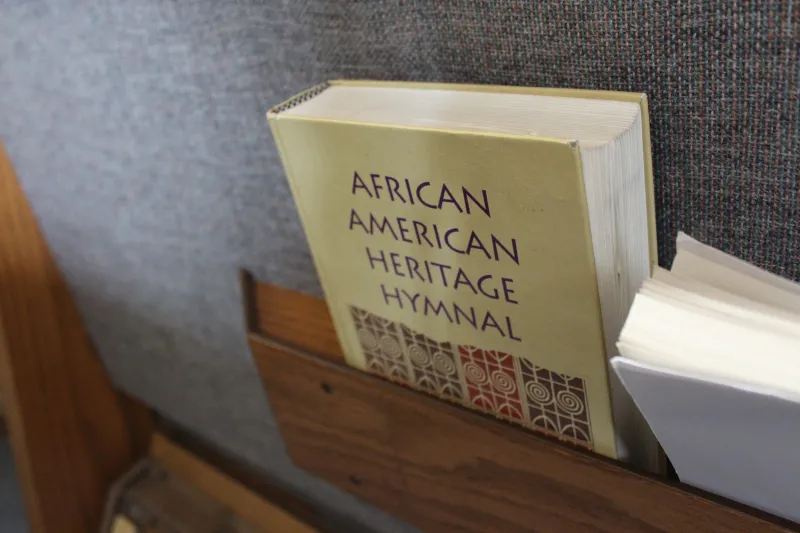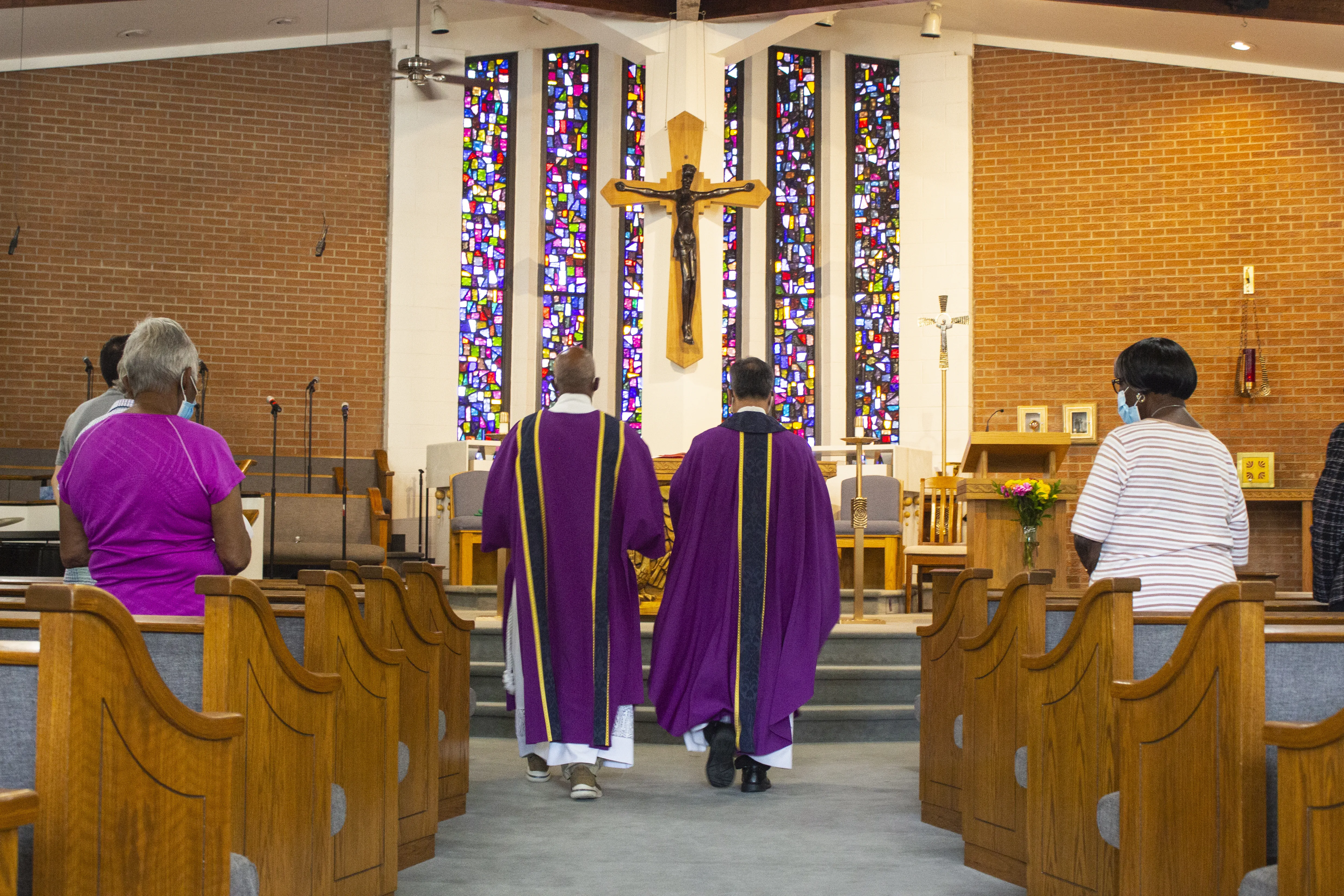
Denver Newsroom, Mar 16, 2022 / 16:00 pm (CNA).
A new survey of Black Catholics in the United States sheds light on what makes Black expressions of Catholicism unique, but also highlights the fact that Black Catholics remain a minority in the country as a whole, and in most parishes.
The survey found that Black Catholics are significantly less likely than other Catholics — and also less likely than Black Protestants — to attend a church where most of the other parishioners are of the same race or ethnicity they are.
About 6% of the Black population in the U.S. — around 3 million total people — is Catholic, compared with some 66% who are Protestant. Black Catholic communities in the U.S. include not only African-Americans, but also African and Caribbean immigrants. They make up about 4% of all Catholic adults.
Black Catholic communities have been present in the United States for centuries, with large African-American Catholic populations in cities including Washington D.C., Baltimore, Philadelphia, Chicago, and numerous cities throughout the South. Overall, 45% of Black Catholics in the U.S. live in the South, while 29% live in the Northeast, 15% live in the West, and 11% live in the Midwest.
Pew’s survey suggests that only a quarter of Black Catholics who attend Mass at least a few times a year report that they typically go to a Mass where most other attendees are Black, and about 17% of Mass-going Black Catholics say they worship at a “Black church.”
That compares with 80% of White Catholics who worship where most attendees are White, and 67% of Hispanic Catholics who worship where most attendees are Hispanic, Pew reported. And in contrast, more than two thirds of Black Protestants say they attend a predominantly Black church.
Pew’s survey drew on a sample of nearly 9,000 Black Americans and was conducted between Nov. 19, 2019-June 3, 2020.
According to the survey, 59% of Black Catholics say they pray at least once a day, while roughly half say that religion is very important in their lives. Black Catholics are somewhat more likely than White and Hispanic Catholics to say they pray every day, and somewhat more likely than White Catholics to say religion is very important to them. Black Catholics also are more likely than other Catholics to say they rely “a lot” on prayer for guidance in major life decisions.
Worship at predominantly Black Catholic parishes is different from that of predominantly White parishes. For one thing, Black Catholics are much more likely to report that other attendees often or sometimes call out “amen” or other expressions of praise during Mass.
Black Catholic Masses are typically longer than those attended by White Catholics; more than a third of Black Catholics say their Masses are longer than 90 minutes. But Black Catholic Masses are still shorter on average than most Black Protestant worship services.

About a quarter of Black Catholics say they have experienced jumping, shouting, and dancing spontaneously during Mass, or charismatic forms of worship such as speaking in tongues. Still, Black Catholics are less likely to report that these more charismatic forms of worship are present at their churches than are Hispanic Catholics, or Black Protestants.
Black Catholics also tend to travel farther to get to Mass than their White or Hispanic counterparts, with 41% saying they have to travel more than 15 minutes to get to Mass.
In terms of preaching at Mass, Black Catholics are more likely to report hearing a homily about racism, and slightly less likely to hear a homily about abortion, than are White Catholics.
A majority of Black Catholics — 77% — say opposition to racism is essential to what being Christian means to them. This contrasts with only 26% of Black Catholics who say that attending church regularly is essential to their faith, 22% who say opposing abortion is essential, and just 16% who say avoiding sex before marriage is essential to their religious identity. In addition, the survey suggests that most Black Catholics (71%) believe abortion should be legal in all or most cases.
Compared to White or Hispanic Catholics, more Black Catholics are converts to the faith. Roughly half of Black adults who were raised Catholic still identify as Catholic (54%), compared with 61% of White adults and 68% of Hispanic adults who were raised as Catholics and still identify with the faith, Pew reports.
Compared to White or Hispanic Catholics, Black Catholics differ in their expectations of what their parish should be like, and what the congregation should do. Black Catholics are more likely than White or Hispanic Catholics to say they think it is essential that churches offer a sense of “racial affirmation or pride,” as well as to say it is essential that churches assist people who need help with bills, housing, or food.
If you value the news and views Catholic World Report provides, please consider donating to support our efforts. Your contribution will help us continue to make CWR available to all readers worldwide for free, without a subscription. Thank you for your generosity!
Click here for more information on donating to CWR. Click here to sign up for our newsletter.





Leave a Reply